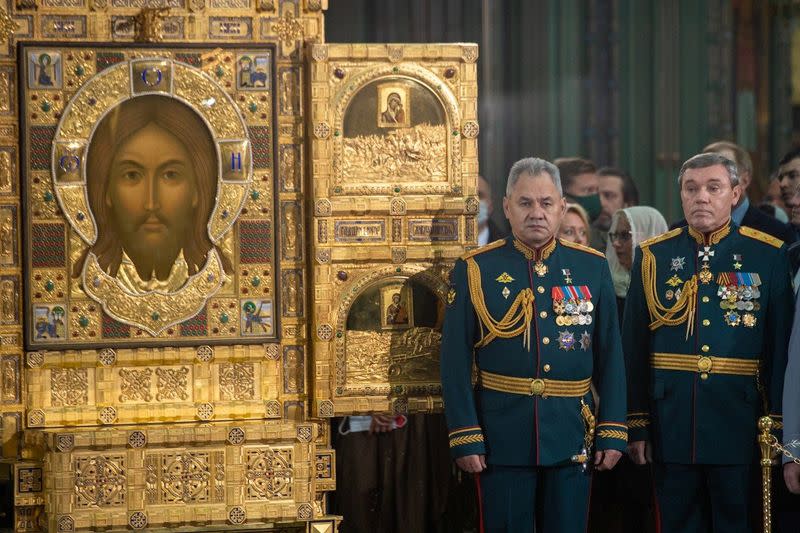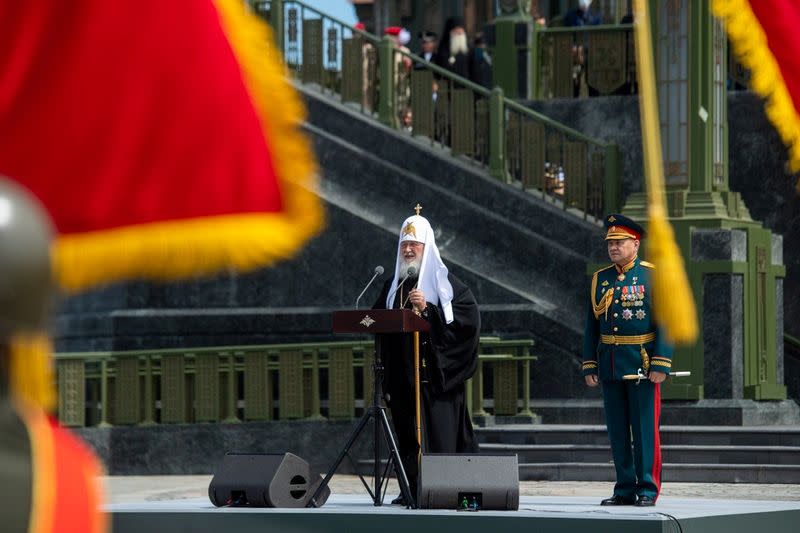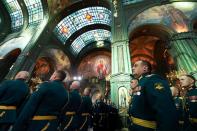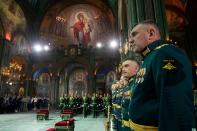Russia inaugurates cathedral without mosaics of Putin, Stalin
MOSCOW (Reuters) - Russia inaugurated on Sunday a huge new cathedral dedicated to its armed forces that had caused controversy over initial plans to decorate its interior with mosaics depicting Russian President Vladimir Putin and Soviet-era leader Joseph Stalin.
Russian Orthodox Church officials said last month neither would be depicted in the cathedral.
The richly decorated 95-metre high cathedral, dedicated to the 75th anniversary of the Soviet victory over Nazi Germany in World War Two, was built in less than two years in a theme park about 55 kilometres (34 miles) from Moscow.
The cathedral had been scheduled to open its doors in May when Russia was also planning to hold a military parade, but both events were postponed due to the coronavirus pandemic.
At a ceremony attended by Defence Minister Sergei Shoigu and military and church officials, Patriarch Kirill, head of Russia's Orthodox Church, thanked Putin and Shoigu for helping to get the cathedral built.
During his two decades in power, Putin has forged close ties with the Orthodox Church.
Originally, the new cathedral was meant to include a mosaic of Putin and Shoigu demonstrating their support for Russia's 2014 annexation of Crimea from Ukraine.
Another mosaic panel would have shown a group of women gathered in front of a sign reading "Crimea is ours".
The Church dropped the planned mosaics in line with "the wishes of the head of state", a priest told Interfax news agency last month. The Kremlin said Putin felt it was too early to celebrate the accomplishments of Russia's current leadership.
Russian media also reported that one of the cathedral's mosaic panels was originally designed to show a portrait of Stalin, who is widely held responsible for the deaths of millions of innocent people, many in the Gulag labour camps.
The Orthodox Church and other religious groups suffered persecution during Stalin's three-decade rule in the atheistic Soviet Union.
(Reporting by Maria Kiselyova; Editing by Gareth Jones)














